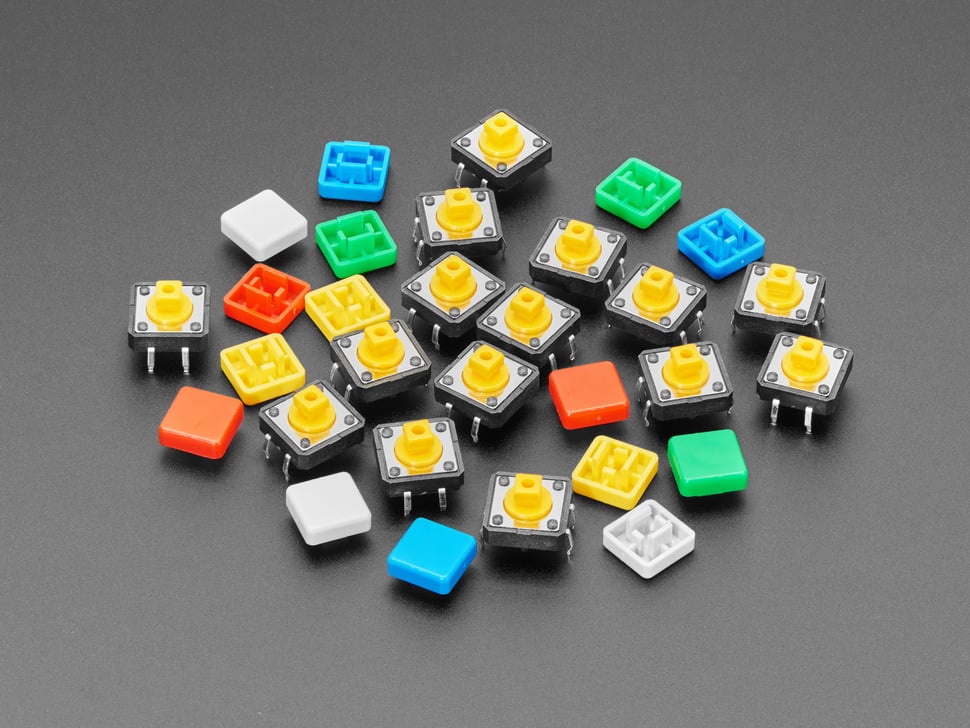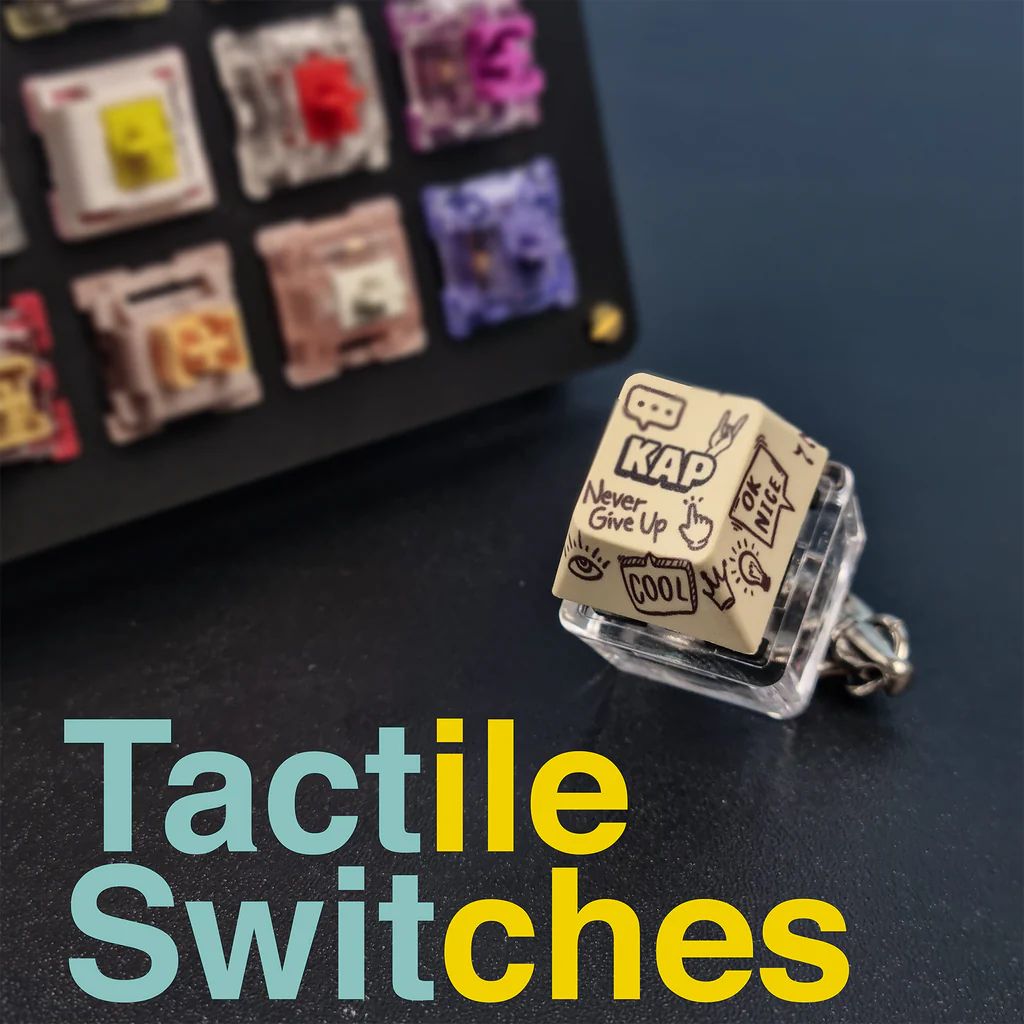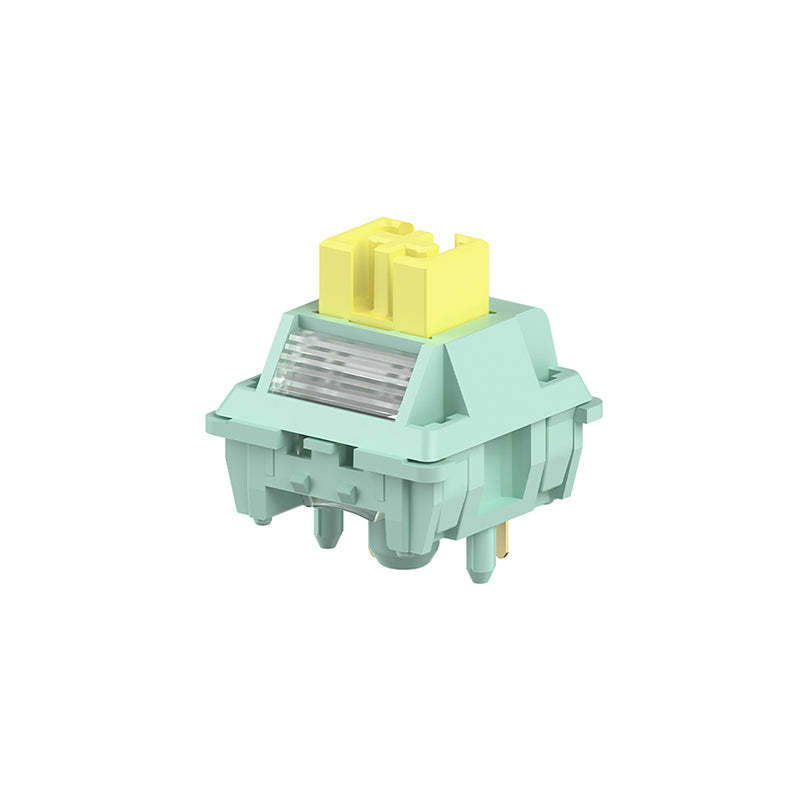For a perfect keystroke, many users recommend tactile switches over linear options.
Recognizing the Perks of Tactile Changes for Boosted Customer Experience
Responsive switches are essential to modern-day customer interfaces, giving physical feedback that improves communication accuracy and customer contentment. These systems are particularly beneficial in atmospheres where speed and precision are critical, such as in pc gaming or expert setups. By providing a distinctive feeling upon activation, responsive switches validate user inputs without the demand to divert aesthetic attention, simplifying task implementation and decreasing mistake rates. This mix of immediate physical feedback and integrity welcomes more expedition right into their wider effects and benefits.
Exploring the Mechanics of Tactile Changes
To comprehend exactly how tactile switches improve individual experience, it is crucial to dive right into their mechanics. Tactile buttons run through a device that users can feel and listen to when a secret is pressed.
The building and construction of these switches varies, however common materials consist of steel for the contacts and rubber or silicone for the tactile dome - tactile switches. These elements are crafted to stand up to countless cycles, guaranteeing resilience and regular efficiency with time. This reliability makes tactile switches especially favored in environments that demand quick, accurate customer input
Just How Tactile Comments Boosts Accuracy and Rate
Numerous customers locate that responsive feedback from switches significantly boosts both the precision and rate of their interactions with gadgets. The distinct physical feeling supplied when a tactile switch is actuated allows customers to validate their input without needing to ascertain aesthetically. This verification is critical in atmospheres where attention is divided across several jobs, as it makes certain inputs are both deliberate and right.
Moreover, the prompt comments from responsive switches minimizes the moment taken in between actions. Users do not have to press secrets numerous times to ensure activation, resulting in quicker action times. This performance is particularly helpful in high-speed keying circumstances where each nanosecond can add to overall productivity.

Additionally, the enhanced sensory experience decreases individual tiredness and boosts involvement, making communications more intuitive and less prone to errors - tactile switches. Thus, responsive switches not only boost the functionality of a device but also contribute to a more satisfying individual experience
The Role of Tactile Switches in Pc Gaming Efficiency

Moreover, responsive switches add to much faster reaction times. The physical feeling validates the key press without the requirement to bad the tricks, allowing quicker inputs and a smoother video gaming experience. This is particularly helpful in games that require rapid and recurring keystrokes, where rate is typically as vital as precision.

Responsive Switches in Professional Environments
Tactile explanation buttons are just as transformative in specialist atmospheres, where effectiveness and ergonomic style improve productivity. These switches, typically found in high-precision keyboards, are valued for their responsive comments. When pressed, they offer a visible bump midway with the keypress, verifying activation without the requirement for complete traveling. This function enables experts such as typists, developers, and data entrance clerks to increase inputting speed and precision, decreasing the risk of mistakes and the stress linked with long term keyboard usage.
In setups like control rooms or workshops, tactile buttons are integrated right into equipment for their dependable efficiency. They provide drivers the certainty required in high-stakes environments, making certain that every command or modification is executed as meant. This reliability, paired with the tactile action, assists keep high levels of focus and operational performance, vital in maintaining operations and meeting specialist requirements.
Comparing Tactile and Non-Tactile Interface
Just how do tactile user interfaces compare to their non-tactile equivalents? Tactile user interfaces, such as those with physical switches or distinctive surface areas, supply instant physical responses with touch.
The option in a knockout post between responsive and non-tactile user interfaces often depends upon the application's context and individual needs. For instance, tactile interfaces are indispensable in scenarios needing procedure without direct line of vision, such as driving or in particular commercial settings. On the other hand, non-tactile interfaces can be exceptional in tidy or sterilized settings where physical buttons might nurture pollutants. Each kind has its toughness, and the optimal option boosts customer interaction, making sure performance and efficiency in customer experience.

Verdict
In conclusion, tactile switches substantially improve customer experiences by providing vital physical responses. By using an extra instinctive and gratifying communication, responsive buttons prove superior to non-tactile interfaces, making them a preferred choice for users seeking reliability and performance in their interactions with technology.